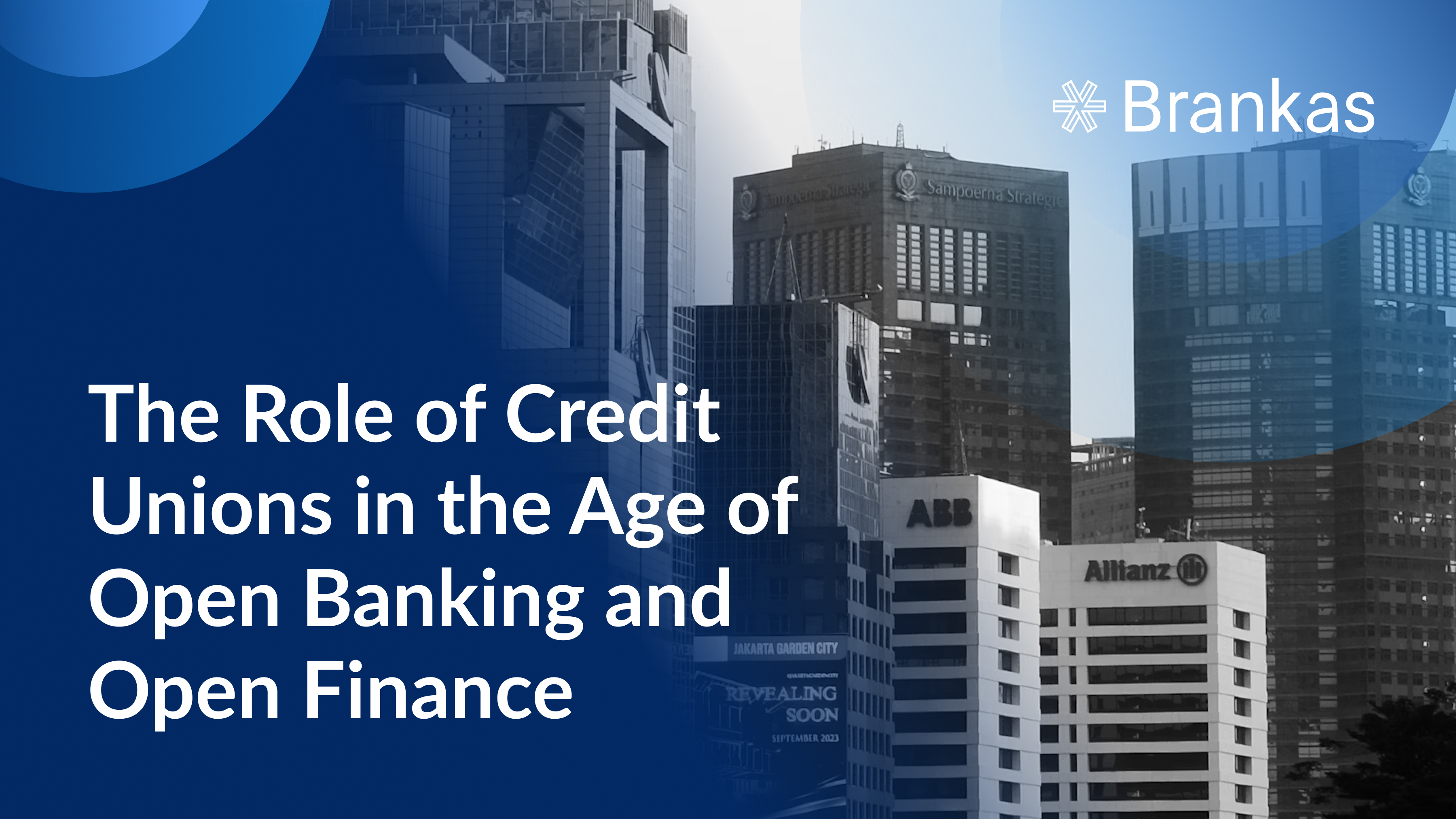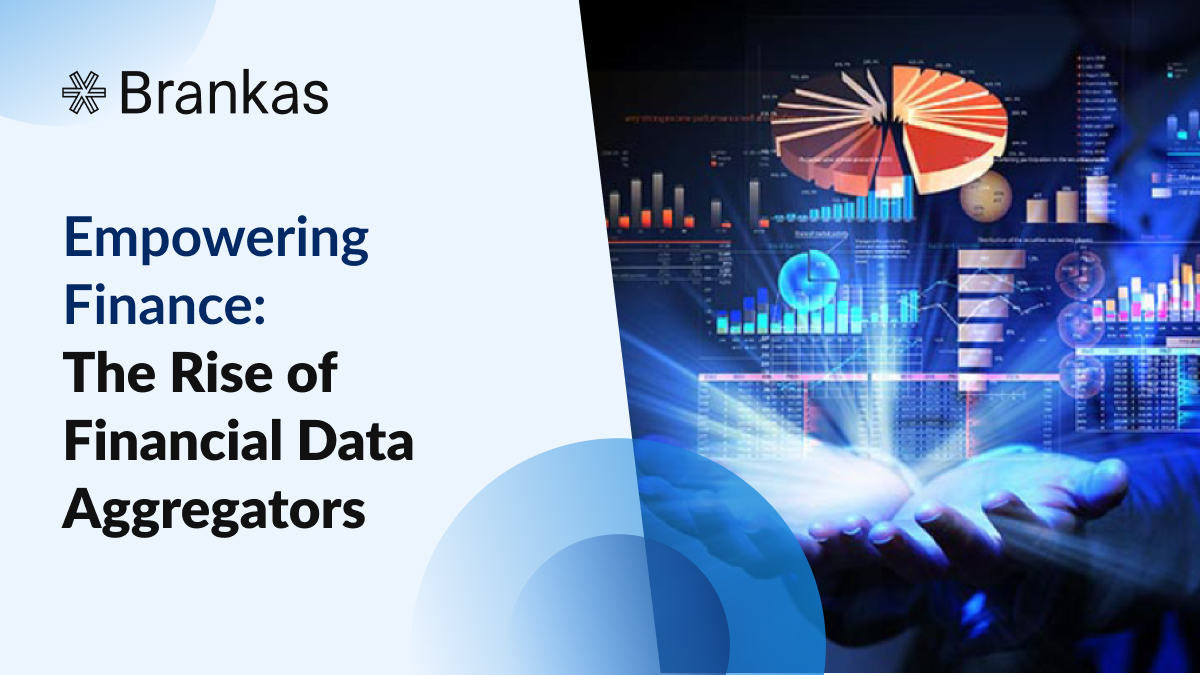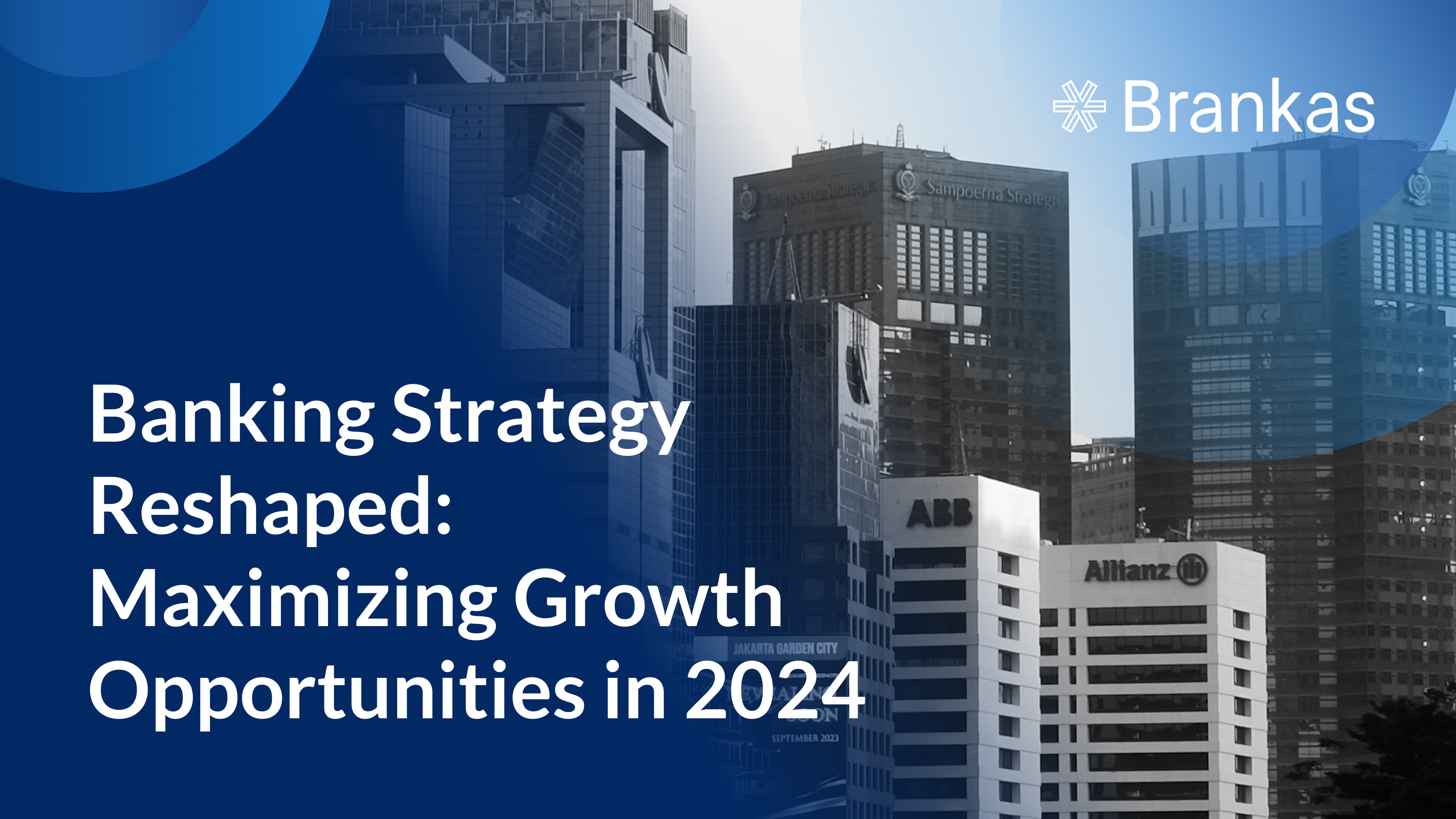Empowering Finance: The Rise of Financial Data Aggregators
A new player has emerged in modern finance that is shaping the way we manage and understand our financial lives – Financial Data Aggregators. What are financial data aggregators, and why do they matter in an increasingly digital financial landscape?
Many people are not familiar with what data aggregators are or how they impact their financial behaviors. Financial institutions, likewise, often lack sufficient knowledge about data aggregators, making it challenging to communicate the risks and benefits to their customers.
Individuals and financial institutions must grasp how these entities function to unlock the advantages offered by data aggregators and steer clear of security risks. A better understanding empowers consumers to make the most of these benefits and helps financial institutions navigate new grounds and inform their customers effectively.
Understanding Financial Data Aggregation
Financial data aggregators skillfully bring diverse threads of financial data into a cohesive picture. These entities use sophisticated algorithms to retrieve and merge information from various financial sources, such as bank accounts, credit cards, and investments. The result is a comprehensive overview of an individual’s or a business’s financial position.
By unlocking access to consumers' financial data, financial data aggregators have paved the way for the emergence of open banking and open finance. The solutions offered by data aggregators encompass both business-to-business and direct-to-consumer services. For instance, FinTechs and financial institutions can leverage payroll data for purposes such as income and employment verification or paycheck-linked lending.
How Financial Data Aggregators Work
Financial data aggregators establish secure connections with various financial institutions and platforms. They access and retrieve financial data in real-time through APIs (Application Programming Interfaces) or other secure methods. These aggregators are designed to handle the intricacies of multiple formats, ensuring seamless integration of data from different sources. Once obtained, the data is processed, cleaned, and organized, ready to be presented in a user-friendly format.
Types of Financial Data Aggregated
The scope of financial data aggregation is extensive. It encompasses traditional banking data such as account balances, transaction histories, and credit card statements. However, it does not stop there. Modern aggregators can also pull in data from investment accounts, providing a consolidated view of stocks, bonds, and other holdings. Credit scores, a pivotal piece of financial health, are often included. The integration does not exclude emerging financial trends; cryptocurrency transactions are increasingly becoming part of the aggregated picture.
Benefits and Applications
Financial data aggregators play a crucial role in transforming the landscape of personal and business finance by making financial information more accessible, insightful, and actionable.
A. Streamlines personal finance
Financial data aggregators provide individuals with a consolidated view of their financial accounts. These aggregators gather data from various sources, such as bank accounts, credit cards, investments, and more. This integrated view enables users to track their spending, analyze financial trends, and manage budgets more effectively. Individuals can make informed decisions about their money by having all financial information in one place, leading to improved financial wellness.
B. Enhances business financial management
Financial data aggregators offer valuable tools for businesses to enhance their financial management processes. These aggregators enable companies to collect and analyze financial data from multiple sources, providing a comprehensive overview of their financial health. This is particularly beneficial for cash flow management, expense tracking, and financial planning. By leveraging these insights, businesses can make data-driven decisions, identify areas for cost optimization, and maintain better control over their financial operations.
C. Maximizes business success of banks and financial institutions
Beyond ensuring the satisfaction and loyalty of existing clients, simplifying options holds the key to attracting new customers and maintaining a competitive edge. Satisfied clients are not only likely to stay with your business, but they also become advocates, drawing in others.
Banks can elevate their service standards by consolidating data, offering enhanced wealth management, efficient payment processing, and personalized financial guidance. This holds whether it is an internal application, service, or an external fintech application. This unified approach positions financial institutions to provide superior services, fostering a positive customer experience and maintaining a leading position.
D. Supports FinTech startups
The advent of financial data aggregators has significantly contributed to the growth of FinTech startups. These startups often rely on access to financial data to develop innovative solutions, such as personal finance apps, investment platforms, and lending services. Financial data aggregators act as a bridge, facilitating secure and streamlined access to the necessary financial information for these startups. This accelerates the pace of innovation in the financial technology sector, fostering the creation of diverse and user-centric financial services.
Challenges and Concerns
Financial data aggregation, while powerful, is not without its challenges, presenting hurdles that require careful consideration.
A. Data security and privacy issues
One of the foremost concerns revolves around safeguarding the confidentiality and integrity of sensitive financial information. The aggregation process involves handling vast amounts of personal and financial data. Ensuring robust encryption, adopting advanced cybersecurity measures, and adhering to industry best practices are imperative to protect against potential breaches and unauthorized access.
B. Regulatory challenges
Navigating complex regulations is a persistent challenge. Financial institutions and data aggregators must comply with a myriad of regulations to ensure lawful data sharing. Staying abreast of evolving compliance requirements, such as GDPR, PSD2, or other regional frameworks, demands a proactive and adaptive approach. Failure to comply not only poses legal risks but can erode trust among users.
C. Consumer awareness and trust
Building and maintaining consumer trust is a delicate task. Many individuals may not fully grasp how financial data aggregators operate and the security measures in place. Heightened awareness campaigns, transparent communication regarding data usage policies, and robust consent mechanisms are vital in establishing trust. Ensuring that users are well-informed about the benefits and risks of data aggregation contributes to a more informed and trusting user base.
Key Technologies Driving Financial Data Aggregation
APIs (Application Programming Interfaces) and open banking play pivotal roles in reshaping the financial landscape. APIs facilitate seamless communication between diverse financial systems, enabling the secure exchange of data. Open banking initiatives, mandated by regulations like PSD2, propel financial institutions to share customer data with authorized third-party providers through standardized APIs. This collaboration enhances the efficiency of financial data aggregation, fostering innovation and improving customer experiences.
Artificial Intelligence (AI) and Machine Learning (ML) have revolutionized how financial data is processed and analyzed. AI algorithms can sift through vast datasets, discern patterns, and generate actionable insights. In financial data aggregation, AI and ML enhance accuracy in categorizing transactions, detect anomalies for fraud prevention, and provide personalized financial recommendations. These technologies streamline the aggregation process and contribute to more informed decision-making.
Blockchain and Distributed Ledger Technology (DLT) introduce an additional layer of security and transparency to financial data aggregation. The decentralized nature of blockchain ensures that data is not stored in a single location, reducing the risk of a single point of failure or unauthorized access. Smart contracts, a feature of blockchain, can automate and enforce predefined rules in data-sharing agreements. This not only enhances security but also fosters trust among stakeholders in the financial ecosystem.
Choosing the Right Financial Data Aggregator
Selecting an appropriate financial data aggregator is a critical decision for businesses. Factors to consider include:
1. Aggregator’s reputation
Evaluating the reputation of a financial data aggregator is crucial. Businesses should consider factors such as the aggregator’s track record, how long they have been in the industry, and feedback from other businesses that have used their services. A reputable aggregator is more likely to adhere to ethical practices and deliver reliable services.
2. Security protocols
The security protocols employed by an aggregator are central to protecting sensitive financial data. Businesses should assess the measures in place, such as encryption during data transmission and storage, access controls, and vulnerability management. A robust security framework minimizes the risk of data breaches and unauthorized access.
3. Compliance with regulations
Adherence to financial regulations is non-negotiable. Businesses must ensure that the chosen aggregator complies with industry-specific regulations governing the handling and storage of financial data. This includes data protection laws, privacy regulations, and any other relevant standards.
4. Comprehensiveness of the aggregated data
The effectiveness of financial data aggregation depends on the breadth and depth of the data collected. Businesses should assess whether the aggregator can consolidate data from various sources comprehensively. The more extensive the coverage, the more valuable the insights derived. This includes evaluating the types of financial accounts covered, such as bank accounts, credit cards, investments, and more.
Businesses should assess the compatibility of the aggregator with their existing systems and evaluate the ease of integration. A thorough understanding of the aggregator’s capabilities and limitations is essential for making an informed choice.
Best Practices for Data Security
Robust data security practices are paramount in financial data aggregation. Businesses must prioritize encryption protocols, secure data storage, and stringent access controls. Compliance with data protection regulations is non-negotiable, and regular security audits are advisable. Employing multi-factor authentication adds an extra layer of protection. Consumers should be informed about the security measures in place and educated on best practices for safeguarding their credentials.
Educating Consumers on the Benefits and Risks
Building consumer trust begins with transparent communication. Businesses should educate consumers on the benefits of financial data aggregation, such as personalized financial insights and streamlined services. They should be transparent about the potential risks, including data breaches and privacy concerns. Providing clear opt-in mechanisms and allowing users to control the extent of data shared instills confidence. Ongoing consumer education programs can empower users to make informed decisions about their financial data.
The Future of Financial Data Aggregation
Continuous advancements in technologies like artificial intelligence and machine learning are expected to enhance the accuracy and predictive capabilities of data aggregation systems. The integration of data analytics and real-time processing is likely to provide more actionable insights for businesses and consumers alike.
As businesses increasingly rely on aggregated data for decision-making, we can anticipate a shift in how financial services are offered. This may lead to new entrants in the finance industry, increased competition, and the development of innovative products and services driven by data-driven insights.
Anticipated changes in data protection laws, privacy regulations, and industry-specific compliance requirements may shape how businesses and aggregators operate. Regulations will likely continue to adapt to the growing importance of data in the financial sector, addressing concerns related to security, privacy, and ethical use of data.
Don’t Get Left Behind
Financial data aggregators have emerged as indispensable players in the modern financial landscape. They empower individuals and businesses with comprehensive insights into their financial standing. The ability to streamline personal finance, enhance business management, and support the growth of FinTech startups highlights the transformative role of financial data aggregators.
Businesses and consumers must embrace the opportunities presented by financial data aggregators. Choosing the right aggregator, prioritizing data security, and educating consumers on the benefits and risks are crucial steps in this journey. Encouraging innovation in the financial sector through the responsible use of aggregated data can foster a more dynamic, efficient, and customer-centric finance industry.


